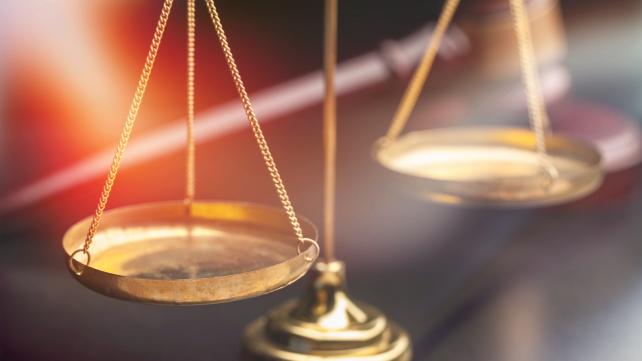
Fairness is a basic concept, yet it seems to be difficult to achieve. In order for equitableness to be the norm in society, the community and culture have to appreciate and advocate its existence. This is not always the case. A lack of fairness can be blatant and unreasonable, like a society that blames and punishes the rape victim for intimate relations outside of marriage even though the violence was imposed upon them against their intent and ability to prohibit. A lack of social equity and fairness may be a subtle part of a cultural norm like television shows that advocate playing harmful tricks on others like the American classic cartoons ‘Tom & Jerry’, and ‘Charlie Brown’ or shows that flaunt how people stay in power and subjugate others, like ‘Mr. Burns’ on the “Simpsons” or ‘Miranda Priestly’ in the movie “The Devil Wears Prada”.
Bullying as part of an ingrained cultural practice is very harmful, especially for ethnic, cultural and religious minorities. The Centers of Disease Control and the U.S. The Department of Education developed a federal definition of bullying in 2014 that defined bullying as having three core elements – unwanted aggressive behavior, observed or perceived power imbalance, and repetition of bad behavior. In Islam the practice of bullying minorities, the poor, the less fortunate or those small in number is expressly prohibited and a thing most disliked by Allah, The Most High. Indeed, such actions are pointed out as forbidden not just because they are wrong in principle, but also because the one who is guilty of the aggressive unwanted behavior likely doesn’t possess as good character as the very people they are attempting to subjugate. In the Holy Quran, Suratul Hujarat Allah says:
Oh you who have believed, let not a people ridicule (another) people; perhaps they may be better than them; nor let women ridicule (other) women; perhaps they may be better than them. And do not insult one another and do not call each other by (offensive]) nicknames. Wretched is the name of disobedience after (one's) faith. And whoever does not repent - then it is those who are the wrongdoers. (Quran 49:11)
The civilization and politics of many countries on the earth trend towards unfairness. For example, in America, the political climate of name-calling and insults are culturally normalized from authority figures like the President and members of Congress to the everyday citizens. Indeed, the first 60 years of the founding of the American republic was run by Presidents, Congressman, Governors, Mayors and community leaders who owned slaves and waged genocidal war against Indigenous Peoples while regurgitating lies, misconceptions, and racist and cultural slurs to justify their practice. In fact, historically, every country on the earth has had a time where their minority populations are ridiculed and called offensive nicknames meant to demean, or perpetrate lies and false characterizations of the people.
This name-calling and disrespect for one another’s dignity and honor is a slippery slide into state-sponsored civil abuse and an overall disregard for human life. When the human being looks at another as subhuman or unworthy – they will be treated unfairly. The very meaning of injustice is a lack of fairness. Is it fair for African-American males to be killed by police even when they are unarmed and not committing a crime? Is it fair that a Palestinian teenager throwing rocks at a tank in a protest is riddled with bullets from a gatling gun? Is it fair for Rohingya villages to be burned to the ground forcing the inhabitants to be unwanted refugees? Of course not! But, when human beings decide that another human is not their equal, is not worthy of respect, is worthy of being publicly dehumanized – then know for sure that the rights of that other person are stripped away. This is evident in the wars and genocides endured all over the earth.
But as Muslims, we turn to the Quran for guidance as to how to interact with each other. In Islam, justice and fairness are inalienables right that the believer must uphold.
You who believe, uphold justice and bear witness to God, even if it is against yourselves, your parents, or your close relatives. Whether the person is rich or poor, God can best take care of both. Refrain from following your own desire, so that you can act justly- if you distort or neglect justice, God is fully aware of what you do.
(Quran 4:135)
As Muslims, when we seek to please Allah and what He has given us as instructing signs to follow, we read:
O ye who believe! stand out firmly for Allah, as witnesses to fair dealing, and let not the hatred of others to you make you swerve to wrong and depart from justice. Be just: that is next to piety: and fear Allah. For Allah is well-acquainted with all that ye do.
(Quran 5:8)
We all live in a social system of shared freedom on this earth – and we live together as one humanity. From this ayah of the Quran, the believer realizes that Allah is not just commanding that we are decent, equitable, reliable, and conscientious when dealing with each other or those of our own religion, tribe, country, cultural or ethnic group. But indeed, fairness is synonymous with humanity. To be fair with each other is to be able to tolerate the existence of each other. We legitimize one another as a gesture of civility and courtesy. This ayah explains that fairness is such a unique and basic right owed to every human being on the earth, that we are obligated to be just even with a people whom we do not like and get along with easily, or who may not like us or perhaps even may be at war with. Still, by the command of Allah, we have to acknowledge and uphold the ideal that fairness as a principle and being fair in our actions to others; is a basic human right.




Add new comment